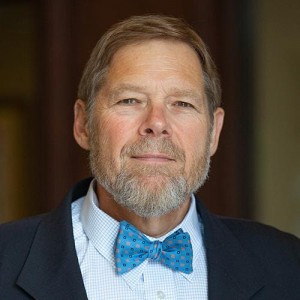 by D. Joy Riley, M.D., M.A.
by D. Joy Riley, M.D., M.A.
Executive Director
If all goes according to the current plan, much of the world’s power will be concentrated in the hands of one man: Tedros Adhanom Ghebreyesus, Director-General of the World Health Organization (WHO).
The World Health Assembly (WHA), which governs the WHO, is set to meet beginning 27 May, in Geneva, Switzerland. Their agenda includes, among other items,
1. an “investment round”: Note that the majority of the WHO’s funding comes from philanthropies (think Gates Foundation, among others)
2. a draft climate and health resolution
3. approving a new WHO global strategy
4. entering into a new pandemic treaty, variously named “pandemic accord” or “pandemic agreement”
Note that a treaty at this level has the force of law: the nuclear arms treaty is an example.
The declaration of a public health emergency of international concern (PHEIC) or a global pandemic sets into motion a multitude of actions (see International Health Regulations (IHR) proposed amendments): potential isolation or quarantine of persons/families/communities, regulations of movement of people and goods across political boundaries, vaccine manufacture and transport, utilization of protective equipment, and transfer of funds — often, massive transfers of funds. Declaring such a situation to exist would logically warrant deep thinking as well as timely action. This article will deal with one question: how wise is it to invest such power of declaration in one person, in a position that is unelected, and answerable to no one? That is the position of the WHO Director-General.
Consider a recent case: monkeypox, a relative of the smallpox virus. Monkeypox was discovered in captive monkeys in 1958; the first reported case in humans was in 1970. A 2003 multistate outbreak in the US involved primarily human contact with prairie dogs. A more recent outbreak occurred in 2022. As of May 21 of that year, monkeypox cases totaled “92 laboratory-confirmed cases and 28 cases of suspicion” in 12 member nations, and this was brought to the attention of the WHO. “On July 23, 2022, World Health Organization (WHO) Director-General Tedros Adhanom Ghebreyesus, PhD, declared the current monkeypox outbreak a Public Health Emergency of International Concern (PHEIC), overriding the WHO Emergency Committee, which decided 6-9 against recommending a PHEIC.”
The proposed amendments to the IHR include many items of concern, with one being the greatly increased repository of power in the Director-General’s position. Specifically, it states
2. If the Director-General considers, based on an assessment under these Regulations, that a potential or actual public health emergency of international concern is occurring, the Director-General shall notify all States Parties and seek to consult with the State Party in whose territory the event arises regarding this preliminary determination and may, in accordance with the procedure set forth in Article 49, seek the views of the Committee established under Article 48 (hereinafter the “Emergency Committee”) . If the Director-General determines that the event constitutes a public health emergency of international concern, and the State Party are in agreement regarding this determination, the Director-General shall notify all the States Parties, in accordance with the procedure set forth in Article 49, seek the views of the Committee established under Article 48 (hereinafter the “Emergency Committee”) on appropriate temporary recommendations.
Note that the Director-General MAY seek the advice of the Committee. These proposed changes have not yet been adopted, but the Director-General in 2022 did not adhere to the advice of the committee. Monkeypox data as of 5 March 2024, collected by the Center for Disease Control and Prevention (CDC) reveal 
Would the consequences have been different if a Public Health Emergency of International Concern (PHEIC) had not been declared? Of course, no one knows. It is telling, however, that the Director-General of the WHO did not act in accordance with the WHO committee — and this predates any proposed increase in power for his position. We need to remember the words attributed to Lord Acton, that “power corrupts; absolute power corrupts absolutely.” The WHO and its leaders are not exceptions to that maxim.
More Resources The Pandemic Treaty That Won't Prevent a Pandemic WHO’s in Charge? WHAt’s in Store? How the World Health Organization could fight future pandemics What the WHO? We must stop the pandemic treaty and take back control from the WHO
Worth Your Time: Selections from the Bioethics Library Distinguished Fellow C. Ben Mitchell, Ph.D.  This is wonderfully unlike any book I’ve ever read. Born in the South of France, Sylvie Vanhoozer is an author, artist, mother, musician, wife of a theologian, and more. Her book is more than a meditation, more than a travelogue of Provence, and more than an art gallery of her own creations. It is a pilgrimage through the seasons of the year from Advent to Ordinary Time wit h extraordinary insights about place, the rhythms of life, and what it means to follow Jesus as an everyday saint. In each chapter she offers ways for readers to Pause, Ponder, Pray, and Play Your Part. Spend a week or spend a year with this book. I promise you’ll come back again and again.
This is wonderfully unlike any book I’ve ever read. Born in the South of France, Sylvie Vanhoozer is an author, artist, mother, musician, wife of a theologian, and more. Her book is more than a meditation, more than a travelogue of Provence, and more than an art gallery of her own creations. It is a pilgrimage through the seasons of the year from Advent to Ordinary Time wit h extraordinary insights about place, the rhythms of life, and what it means to follow Jesus as an everyday saint. In each chapter she offers ways for readers to Pause, Ponder, Pray, and Play Your Part. Spend a week or spend a year with this book. I promise you’ll come back again and again.  The work of Gil Meilaender will be very familiar to readers of this newsletter. He is the author of Bioethics: A Primer for Christians, now in it’s fourth edition, Body, Soul, and Bioethics, Should We Live Forever?, and a bookshelf of other volumes. He was also an esteemed member of the President’s Council on Bioethics under Leon Kass’s and Edmund Pellegrino’s leadership. We have all profited from Gil’s work. And this volume will be no exception. It is not a traditional academic volume covering the outline of Christian ethics, but an exposition of the structure of the Christian life and the spirit of the Christian life. Rich and practical, this book is worth every minute spent reading and reflecting.
The work of Gil Meilaender will be very familiar to readers of this newsletter. He is the author of Bioethics: A Primer for Christians, now in it’s fourth edition, Body, Soul, and Bioethics, Should We Live Forever?, and a bookshelf of other volumes. He was also an esteemed member of the President’s Council on Bioethics under Leon Kass’s and Edmund Pellegrino’s leadership. We have all profited from Gil’s work. And this volume will be no exception. It is not a traditional academic volume covering the outline of Christian ethics, but an exposition of the structure of the Christian life and the spirit of the Christian life. Rich and practical, this book is worth every minute spent reading and reflecting.  Hans Madueme, MD, PhD, trained both as a physician and a systematic theologian. In this book he brings to bear his vast knowledge of both science and theology. This book is not a typical volume in the so-called faith/science conversation. Arranged around the themes of (1) authority, (2) protology, and (3) hamartiology, this volume is a defense of biblical authority, Christian dogmatic theology, and the reality of the effects of a real Adam’s sin on a real world with all it’s real consequences. Madueme is decidedly not against science. He is instead about putting science and Christian theology in their proper place. This book is a tour de force that will be referenced and discussed for a long time.
Hans Madueme, MD, PhD, trained both as a physician and a systematic theologian. In this book he brings to bear his vast knowledge of both science and theology. This book is not a typical volume in the so-called faith/science conversation. Arranged around the themes of (1) authority, (2) protology, and (3) hamartiology, this volume is a defense of biblical authority, Christian dogmatic theology, and the reality of the effects of a real Adam’s sin on a real world with all it’s real consequences. Madueme is decidedly not against science. He is instead about putting science and Christian theology in their proper place. This book is a tour de force that will be referenced and discussed for a long time.

